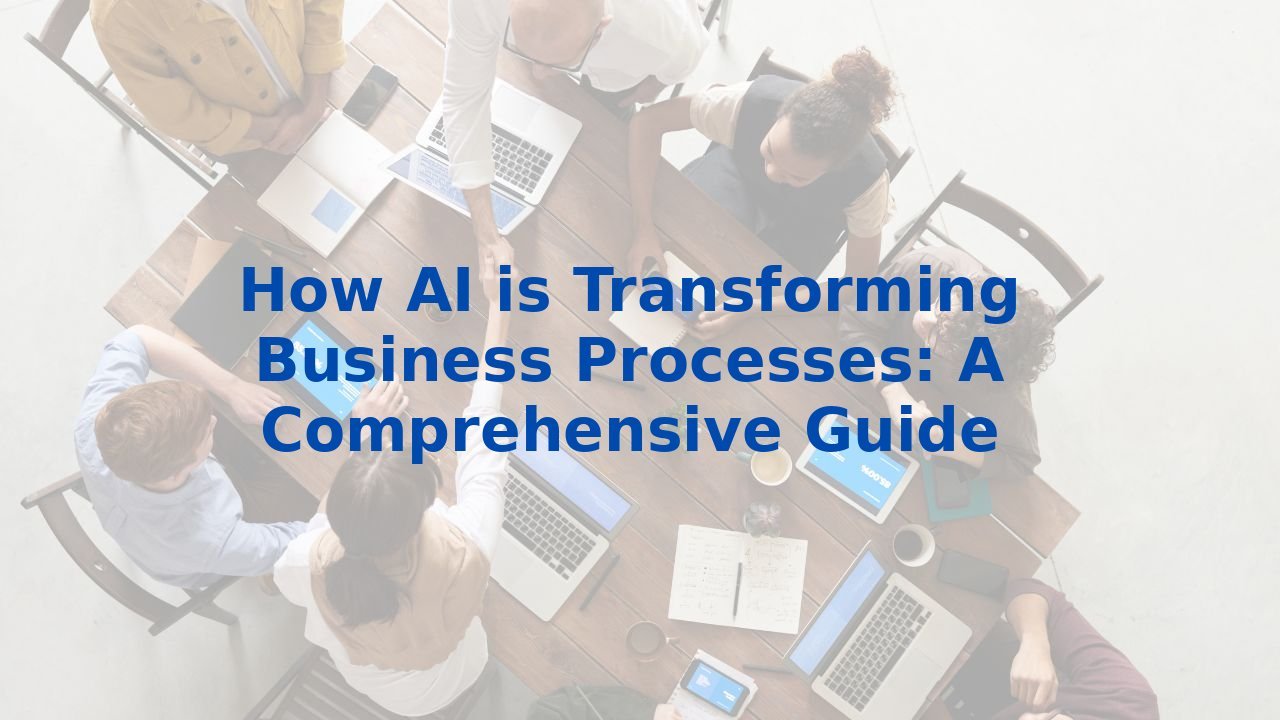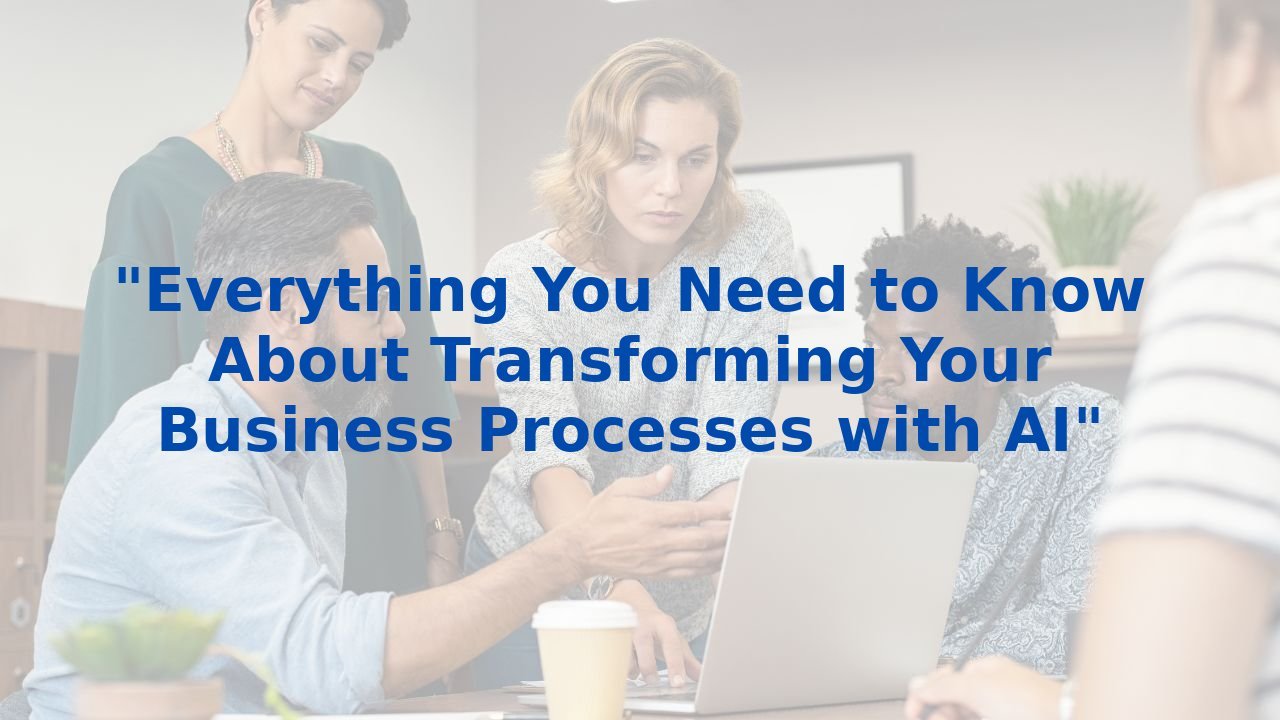How AI Is Transforming Business Processes: A Comprehensive Guide
The Transformative Power of AI in Business Processes
As organizations navigate an increasingly complex landscape, the demand for efficiency and innovation in business processes becomes paramount. Enter the realm of Artificial Intelligence (AI), which has surged to the forefront of modern business practices, opening up endless possibilities for improvement. In particular, AI's integration into process mining, robotic process automation (RPA), and healthcare operations is paving the way for a new era of efficiency and innovation.
Understanding Key Business Processes
Before exploring how AI enhances these processes, it’s essential to understand what they encompass. Process mining involves analyzing event data to discover, monitor, and improve real processes. It provides insights into workflow efficiencies and inefficiencies, enabling organizations to identify bottlenecks and optimize their operations.
Robotic Process Automation (RPA) refers to the use of software robots (bots) to automate repetitive, rule-based tasks traditionally performed by humans. RPA can manage everything from data entry to complex transactions across various business sectors, effectively freeing up employees' time and allowing them to focus on more strategic tasks.
In the context of healthcare operations, the continuous pursuit of improved patient care, operational efficiency, and reduced costs is a critical concern. The healthcare sector demands timely access to data, streamlined processes, and a reduction in human error, all of which can be significantly enhanced through AI-driven solutions.
AI's Role in Enhancing Business Processes
AI enhances business processes through various capabilities that lead to significant breakthroughs in efficiency. Here’s how:
1. Enhanced Decision Making: AI algorithms can analyze vast amounts of data and extract actionable insights, allowing organizations to make informed decisions without delay. This is particularly beneficial in process mining, where the goal is to understand and improve workflows continually.
2. Increased Efficiency: By harnessing RPA, organizations can automate tedious and time-consuming tasks. This not only speeds up processes but also ensures that tasks are completed with a high degree of accuracy, reducing the potential for human error.
3. Predictive Analytics: In healthcare, AI can predict patient admission rates, optimize resource allocation, and improve treatment strategies. By utilizing predictive analytics, healthcare providers can proactively address patient needs, ensuring better health outcomes and operational efficiency.
4. Real-time Monitoring: With AI, organizations can monitor business processes in real-time, gaining insights into operations as they unfold. This allows for immediate corrective actions when irregularities arise, further streamlining processes and enhancing service delivery.
The Benefits of Training Employees for AI Implementation
While the integration of AI into business processes offers remarkable benefits, the success of these initiatives hinges on adequately training employees. Upskilling your workforce for AI-related tasks fosters a culture of adaptability and innovation.
1. Empowering Employees: Training employees in AI not only empowers them with technological skills but also equips them to harness the power of AI in their roles. This enables them to identify opportunities for application and improvement within their existing workflows.
2. Promoting Collaboration: With an AI-competent workforce, different departments can collaborate more effectively, leveraging AI insights collectively. This fosters a culture of teamwork, enhancing overall organizational performance.
3. Future-proofing the Workforce: As AI evolves, organizations must ensure their employees grow alongside it. Continuous training provides a robust framework for keeping skills current, making your workforce not just competent but also resilient in the face of technological change.
Moving Forward: Embracing AI for a Competitive Edge
In conclusion, the integration of AI into business processes such as process mining, robotic process automation, and healthcare operations is no longer a choice but a necessity for organizations aiming to thrive in a competitive landscape. Embracing AI not only enhances efficiency and drive profitability but also equips employees for a future where technology and human intelligence coalesce seamlessly.
Your organization stands to gain immensely from not only adopting AI technologies but also from investing in the training of your employees to maximize these tools. By doing so, you ensure a smoother transition into the AI-driven future, enhancing operational efficiencies along the way. For more information on training your workforce to excel in AI, explore our comprehensive training options designed to equip every level of your organization with the necessary skills for success.



